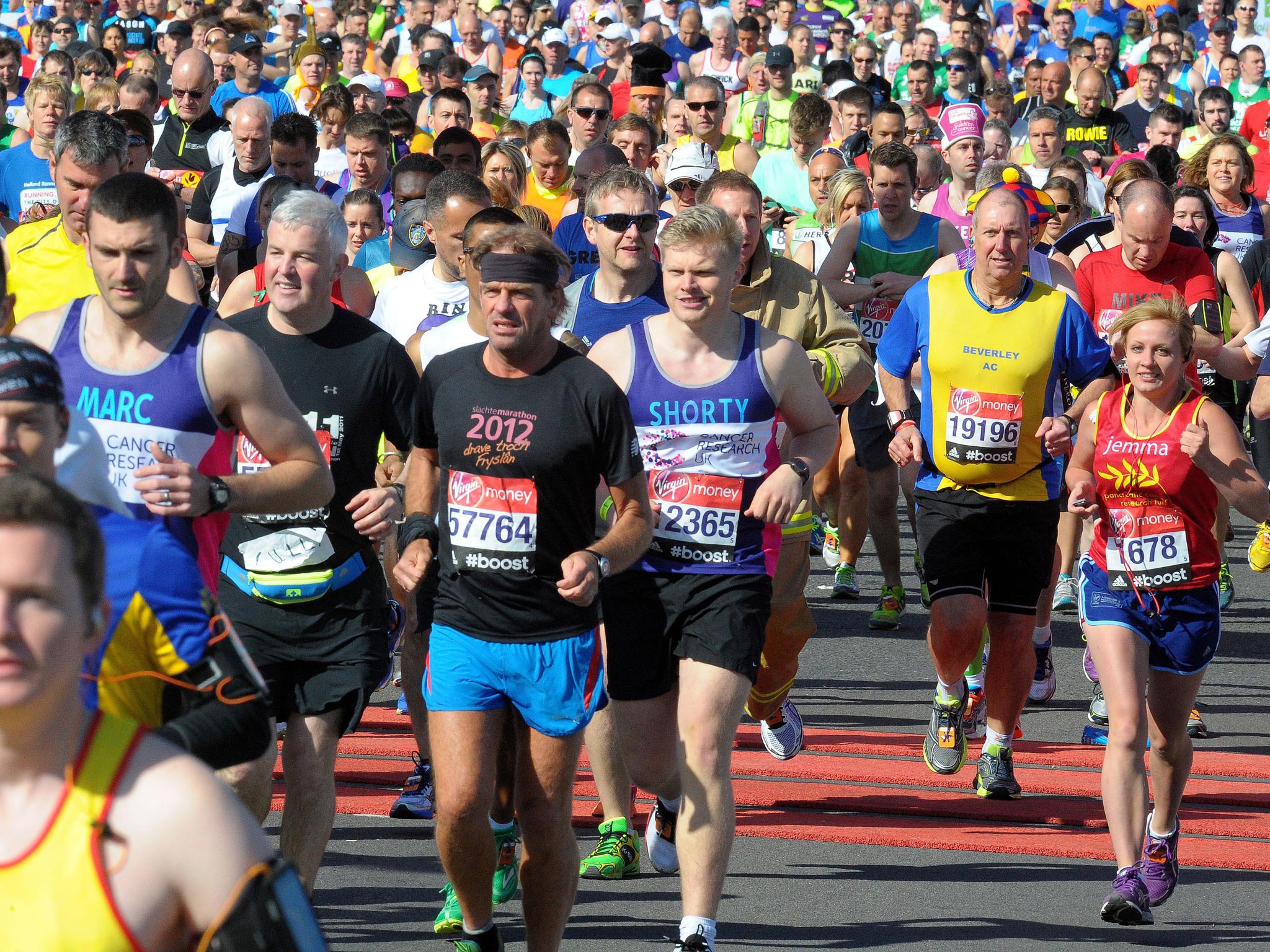Doping crisis: London Marathon winners called into question
One in four winners from the six global marathons have recorded 'suspicious' blood scores

The London Marathon was won seven times in 12 years by athletes who have recorded blood scores that indicate doping.
According to data leaked to the Sunday Times, one in four winners of the the big six global marathons - London, Boston, Chicago, New York, Berlin and Tokyo - have recorded suspicious blood scores.
The newspaper says they "should have faced censure or at least been investigated over evidence of potential blood doping within their test results."
The athletes whose blood experts deemed suspicious collectively won more than £4 million in prize money from marathons including Chicago, London, New York and Boston.
From the London Marathon, the legitimacy of seven winners, six runners-up and seven third places has been called into question.
Russian runner Liliya Shobukhova, who won the marathon in 2010 and was runner-up in 2011, was stripped of her title this year and had her results since 2009 annulled.
It is claimed that she recorded "extreme blood scores" for nine years before the authorities took action against her last year — and that marathon organisers were not told about the results.
The blood test data - 12,000 results from 5,000 athletes - was held by International Association of Athletics Federations (IAAF) and leaked by a whistle-blower.
After reviewing the data, scientists Robin Parisotto and Michael Ashenden claimed a third of the medals from endurance events at the Olympics and World Championships were won by athletes with abnormal or suspicious blood tests. Parisotto said he had never seen such a set of blood values.
It is thought that none of these athletes have been stripped of their medals.
This is not proof of doping, but the revelations may increase scrutiny of future sporting events, including the World Athletics Championships in Beijing this month.
The World Anti-Doping Agency (Wada) announced on Friday that it would launch an investigation into the allegations. The IAAF has agreed to give its full database to the anti-doping body.
The BBC reports that the IAAF will strip a number of athletes of medals won over the last decade. This "delayed justice" comes after the re-testing of old samples and analysis of blood passports.
The IAAF, however, has condemned the leak, and said the two experts had "no knowledge whatsoever of the actions taken by the IAAF in following these suspicious profiles" and that their analysis "contains a number of seriously incorrect assertions".
Also in the Sunday Times, eight British athletes - including Mo Farah - are publishing their blood test results "to show they are clean".
Join our commenting forum
Join thought-provoking conversations, follow other Independent readers and see their replies
Comments